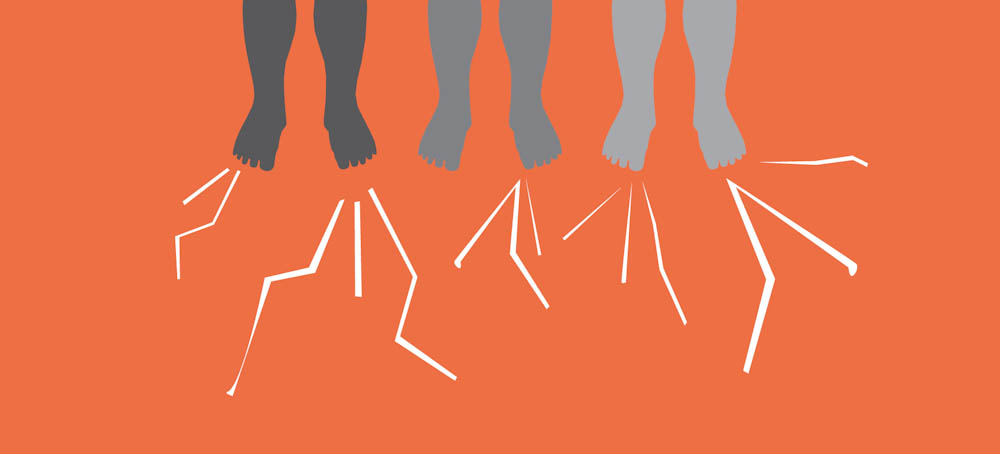The symptoms of peripheral neuropathy, which affects about one-third of patients receiving chemotherapy, include numbness, tingling, and pain in the hands and feet. Some patients don’t experience these symptoms after treatment ends, but in other patients, they are long-lasting.
There is currently no preventive or treatment for peripheral neuropathy, which is caused by the degeneration of the long, spindly nerve cell projections — called axons — that transmit physical sensations to the brain. But recently, Dana-Farber researchers discovered how certain chemotherapy drugs damage the nerve axons, and they say the finding could lead to ways of preventing this common and troublesome side effect of cancer treatment.
Unlike the brain, which is protected by a physical barrier from many harmful chemicals, nerve axons – which are up to two or three feet long in humans — are exposed to substances that flow through the blood circulation. A report in the journal Neuron by Dana-Farber’s Rosalind Segal, MD, PhD, and her colleagues reveals for the first time precisely how taxanes, a class of commonly used chemotherapy drugs, trigger a dying-off of sensory axons. With this knowledge, it might someday be possible to give patients a drug prior to chemotherapy treatment that would reduce or prevent neuropathy symptoms, the investigators say. Taxane drugs are routinely used in treating early-stage breast cancer and some other cancer types.
Segal and her colleagues discovered that a protein called Bclw plays a unique role in preventing the degeneration of nerve axons. Bclw blocks the action of another protein that sets off a cascade of chemical reactions, ending in nerve cell death. During adult life, Bclw protects nerves from degeneration – except in the case of a traumatic injury or, in cancer treatment, exposure to chemotherapy drugs.

The investigators discovered that taxane chemotherapy prevents the Bclw protein from playing its protective role. When they added the taxane drug, paclitaxel, to sensory nerve axons in the laboratory, the body did not make enough Bclw protein, and the axons degenerated.
The scientists then asked if adding Bclw protein to the nerve axons before exposing them to paclitaxel would prevent the nerve damage — and it did. Moreover, they demonstrated that a synthetic compound based on a part of the Bclw protein was able to prevent degeneration from exposure to paclitaxel. This “provides a promising template for drugs that can prevent chemotherapy-induced peripheral neuropathy,” say the scientists.
Such drugs aren’t likely to become available any time soon, but Segal says having discovered the mechanism that causes peripheral neuropathy in patients treated with taxane chemotherapy might be valuable in other ways. One possibility is that doctors might be able to predict which patients will develop peripheral neuropathy, based on whether they have higher or lower levels of Bclw based on their genetic background, according to Segal.

